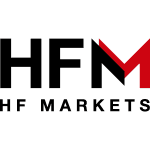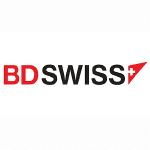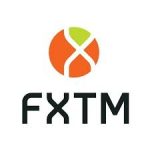Mauritius Forex License 2025
|
PACKAGE «COMPANY & FOREX LICENSE IN MAURITIUS» |
49,900 EUR |
- Consulting on relevant legislation and assisting with legal entity registration
- Guidelines for submitting all required documents and certificates
- Drafting a clear organizational structure with clear lines of authority and responsibility
- Reviewing the license application and supporting documents
- Company secretarial, registrar office/agent for the first year
- Provision for two resident directors
- Fee payable to the Financial Services Commission
- Financial Services Commission processing
- Legal Advisor Consent
- Registrar of Companies License
- Tax Registration
- Government fees
- Assistance in opening a Corporate Bank Account
| Legal Services for Your Forex Project | from 1,500 EUR |
Advantages of the Mauritius Forex License

Above all, Mauritius offers political stability, good governance, and an investor-friendly environment that provides secure and transparent conditions under which forex businesses operate and invest. The regulatory processes have been streamlined and bureaucratic hurdles cut for starting and operating forex businesses, a factor that has been very instrumental in ease of doing business and encouraging entrepreneurship in the country. In addition, Mauritius is well-endowed with modern and developed infrastructure in areas such as transport, communication networks, and technology facilities, which are very fundamental in the running of a successful forex business.
There are no government-imposed exchange controls in Mauritius. In other words, under the Mauritius forex, there are no stringent restrictions on foreign exchange transactions and inflows and outflows of funds for licensees. This, in fact, provides such a regulatory environment that can create an enabling regime allowing forex traders to carry out their activities with relative ease and flexibility regarding currency conversion, fund transfers, and international transactions. Generally, zero exchange controls are also accompanied by the general simplification of administrative procedures regarding foreign exchange transactions.
The island state of Mauritius has a very favourable tax environment, with no Capital Gains Tax, no Withholding Tax, and relatively low Corporate Tax at 15%. Such an efficient tax regime may contribute much to the profitability of forex businesses operating under a license from Mauritius. More importantly, this may be even more favorable under the double taxation agreements between Mauritius and the other country that provide lower withholding taxes applicable on interest, royalties, and other income. This can also improve the after-tax return for businesses executing cross-border transactions.
The Mauritius banking sector is sound, well-regulated, and diversified to meet the different needs that may arise from forex trading operators. These services include multi-currency accounts, efficient funds transfer, and easy access to state-of-the-art technologies in banking that facilitate smooth, speedy, and secure transactions. It also provides efficient facilities for foreign exchange, enabling licensees to convert money with ease and hedge against risks in changes in exchange rates resulting from their international trading activities.
Common law in Mauritius is respected, and the renowned reliability thereof is an incredible advantage to forex operators and investors; this gives them a familiar lawful framework wherein their operations are regulated. Such would contribute to an environment where stability and security would ensue for forex trading and investment operations. The legislation in Mauritius provides clarity and foreseeability for operators and investors with regard to their rights and obligations arising under the law and potential liabilities.
Forex Regulations in Mauritius
However, the Financial Services Commission, Mauritius regulates financial services, including forex trading. It has established a great deal of compliance requirement, transparency, and protection for investors, which helps to offer sound and adequately regulated atmosphere operation for forex. The authority duly executes on-going due diligence on forex licensees to ensure they remain compliant with the regulatory requirements. This could entail ongoing financial reviews, business operations, and compliance procedures, in addition to reviewing the management of risks.
Key legislation and regulations governing forex businesses in Mauritius:
- The Financial Services Act of Mauritius
- The Securities Act of Mauritius
- The Securities (licensing) Rules 2007
- The Companies Act 2001 of Mauritius
- The Prevention of Corruption Act 2002
- The Prevention of Terrorism Act 2002
- AML-CFT Handbook
- The Financial Intelligence and Anti-Money Laundering Act 2002 (FIAMLA)
The Mauritius Financial Services Act provides the essence of financial regulation and gives a legal basis for the licensing and supervision of financial services, including the forex trading activity. It delineates the conditions for licensing, operation, and supervisory arrangements applicable to any licensed provider of financial services. In a nutshell, its objectives are aimed at financial stability, protection of investors, and integrity of the financial sector.
This body of law primarily comprises the Financial Intelligence and Anti-Money Laundering Act 2002, which establishes a comprehensive regime on actions to be implemented to deter, detect, probe, and prosecute money laundering and financing of terrorism practices. To this end, the FIAMLA mandates the applicable forex licensees to adhere to customer due diligence practices so as to ascertain and identify their customer’s identity.
The Mauritian regulations also point out protection with respect to the funds and interests of the clients. Segregation of client funds from the broker’s funds is sometimes required for forex brokers, in which case the broker does not use the client’s funds in covering operational expenses. This kind of protection is important; it serves as a means to ensure security, transparency, and integrity of the assets of the clientele, including safeguarding them against broker insolvency or bankruptcy.
Advantages
The most popular country to start Forex trading
Political stability and favourable investment environment
There are no foreign exchange controls by the government
Low income tax - 15%, no capital gains tax
Types of Mauritius Forex Licenses
The FSC offers different types of licenses depending on the nature of the intended forex trading activities. These licenses enable companies to engage in various aspects of forex trading and related financial services. The specific requirements for each type of forex license can vary, including capital requirements, compliance measures, reporting obligations, and other regulatory considerations.
The main types of Mauritius forex licenses are as follows:
| License Type | Description | Requirements and Fees |
|---|---|---|
| Investment Dealer License | For companies that wish to operate as forex brokers, offering trading platforms and facilitating forex trading for clients, including trading of currency pairs and derivatives for retail and institutional clients. | Initial capital: 700,000 MUR (approx. 14,000 EUR) Application processing fee: 5,000 MUR (approx. 100 EUR) Annual fee: 60,000 MUR (approx. 1,200 EUR) |
| Investment Adviser License | For companies providing forex-related investment advice and consultancy, including recommendations, market analysis, trading strategies, and investment opportunities. | Initial capital: 600,000 MUR (approx. 12,000 EUR) Application processing fee: 5,000 MUR (approx. 100 EUR) Annual fee: 57,000 MUR (approx. 1,200 EUR) |
| Global Business License (GBL) | Not a specific forex license, but allows for various financial activities, including forex trading, investment holding, and other financial services. | Initial capital: from 45 MUR (approx. 1 EUR) Application processing fee: 23,000 MUR (approx. 460 EUR) Annual fee: 90,000 MUR (approx. 1,800 EUR) |
Best Mauritius Forex Brokers











Requirements for Mauritius Forex License Applicants

In order to obtain a license for forex trading in Mauritius, you will have to fulfill quite a few legal requirements as the FSC has clearly brought into being strict eligibility criteria to obtain a forex license in Mauritius.
The authority substantially verifies the applicant’s financial soundness during the time of initial licensing, as well as the competence of people involved, business plans, and compliance with AML/CFT regulations, including the adoption of Know Your Customer (KYC) policy.
A company that is willing to apply for a forex license in Mauritius must meet the following conditions of preparation:
- Your incorporation of a local company
- Directors, officers, and key personnel must all pass through the criteria of being Fit and Proper under the FSC, a measure of their integrity, competence, and experience in the financial industry
- Key personnel should have experience and necessary qualifications in forex trading, financial services, risk management, and compliance
- Implementing effective AML/CFT policies and procedures, including verification of the identity of clients, monitoring of transactions, and filing of suspicious activity reports
- Establish appropriate risk management practices, which shall be at least controls for managing market risk, credit risk, and operational risks associated with the forex trading business
- Demonstrate the capabilities of the trading platform, including order execution, pricing transparency, and risk management tools
- Undertaking to report and disclose forthwith to the FSC, periodically, financial reports, risk assessments, and compliance reports
Following are to be attached along with the application form:
- Certified copy of Certificate of Incorporation of the company
- Certified copy of the Constitution (Memorandum and Articles of Association) of the company
- An elaborate business plan or feasibility study that deals with the nature of the proposed forex trading, market target, marketing schemes, risk management processes, and compliance functions
- Forex services description: a listing of currency pairs to be traded, systems of trading, level of leverage, and order execution method
- Audited financial statements of the firm to demonstrate its financial stability and capability in meeting obligations on a continuous basis
- Information on the arrangements for the protection of customer funds including the segregation of customers’ money from the operational money, and arrangements for the protection of customers’ interest
- Proof of meeting the minimum capital requirements
- A curriculum vitae of each director, officer, and key personnel involved in forex trading activities
- Declarations of Fit and Proper status for each director, officer, and key personnel, including their experience, qualifications, and past regulatory and legal problems
FOREX LICENSE IN MAURITIUS
| Period for consideration |
3-4 months | Annual fee for supervision | from 10,000 euros |
| State fee for application |
5,700 $ | Local staff member | Required |
| Required share capital | 25,000 $ | Physical office | No (can be later, no requirements) |
| Corporate income tax | 15% | Accounting audit | Required |
How to Establish a Forex Company in Mauritius
A GBC is a structure of company largely used in Mauritius, enjoying flexibility and access to its favorable tax regime, with the possibility of holding licenses to conduct forex-related activities. It can be duly incorporated under the Companies Act 2001 of Mauritius. The incorporation may take some business days, depending on the complexity of the business and the quality of the submitted documents.
Main statutory requirements in setting up a GBC:
- It should have at least one shareholder;
- It should have at least 2 directors resident in Mauritius;
- There should be a qualified company secretary who must be a resident of Mauritius;
- Initial capital requirements depending on the type of license;
- A registered office address in Mauritius where official communications and notices can be sent and accounting records maintained;
- Tax resident in Mauritius to avail of tax benefits, the management and control of the GBC should be situated in Mauritius – its alternative is the exemption of non-resident from tax;
- An account opened with a bank operating in Mauritius for the GBC financial transactions;
- A GBC needs to be administered by a management company, which would act as an intermediary between the company and FSC;
- Statutory financial statements shall be prepared and audited in Mauritius;
In order to establish a company in Mauritius, you may follow the subsequent steps:
- Find a management company;
- Select a name that is unique, fitting, does not violate any national naming conventions, and is available for reservation;
- Prepare all the required documents;
- Pay the incorporation fees;
- Submit the necessary documents with the application forms to the Registrar of Companies;
- Once the GBC is incorporated, open a corporate bank account in Mauritius;
- Register the GBC for taxation purposes with the Mauritius Revenue Authority – MRA;
- Register as an employer with the Ministry of Labour, Industrial Relations, and Employment;
- Register your employees for the National Pension Fund – NPF and the National Savings Fund – NSF.
The following documents are, inter alia, required to incorporate a company in Mauritius:
- A Memorandum;
- Articles of Association;
- Copies of passports of the directors, secretary, and shareholders;
- An application form for company incorporation;
- A notice of reservation of name issued by the Registrar of Companies;
- The consent of the directors of the company;
- The consent of the secretary of the company;
- The consent of every shareholder of the company;
- Proof of the company’s registered office address in Mauritius;
- A comprehensive business plan that outlines your trading activities, target markets, risk management, and compliance procedures;
- Audited financial statements that reflect the company’s financial stability and meet the minimum capital requirements;
- Record keeping, reporting to the relevant authorities, and ongoing compliance obligations in writing.
Mauritius
Capital |
Population |
Currency |
GDP |
| Port Louis | 1,295,789 | MUR | $29,164 |
How to Apply for a Mauritius Forex License
Once an onshore company is incorporated, the applicant may apply to the regulatory authority. The process of the application may take 4 to 8 months to be processed depending on the complexity of the business and quality of the application.
The following are the main steps in applying for a forex license in Mauritius:
- Preparation of all relevant documents
- Application form and personal questionnaires to directors and shareholders of the company, with the payment of all prescribed application fees.
- Filing of application supported by documents to the FSC. Some due diligence and background checks concerning the directors, shareholders, and other key personnel of the company that will have to take relevant tests or attend a meeting with the authority to provide more detailed information.
The application is successful only if the FSC is satisfied that:
- the applicant is qualified in terms of the relevant Act relating to the licensable activity for which application is being made;
- the applicant has sufficient resources, infrastructure, and employees with competence, experience, and expertise to conduct the activity for which the license is applied for;
- The applicant has adequate arrangements for the proper supervision of everything done under the license in order to ensure compliance with the law and the conditions of its license;
- The applicant and each of its controllers and beneficial owners are fit and proper persons to carry on the business for which a license is sought;
- The applicant, once licensed, will be able to meet criteria or standards, including prudential standards, applicable to its business activity;
- No harm would be caused or would occur in the financial services industry if the license is granted.
Ongoing Requirements for Mauritius Forex Licensees
The forex licensees in Mauritius are obliged to act in compliance with national legislation and regulations in order to maintain high standards of forex trading activity for the protection of a good reputation of the jurisdiction. Above all, special attention should be drawn to requirements related to AML/CFT, financial reporting, and advertising activities.
The main points of AML/CFT regulations regarding the forex companies in Mauritius are the following:
- The Forex firms are required to establish adequate CDD mechanisms when establishing business relations with their customers, which shall cover identification of the customers, risk profiling of the customer, and obtaining necessary documents pertaining to this.
- The companies dealing in Forex are required to take on the responsibility of maintaining proper recording of the identities of their clients, their transactions, as well as business relationships of clients. Such records are to be preserved for a certain period as required by law.
- All Forex companies must report to the Financial Intelligence Unit of Mauritius any transaction or activity suspected to be money laundering or terrorist financing.
- It is also compelled that there should be proper internal controls and risk management practices in order to avoid the risk of being utilized for money laundering or other unlawful activities.
- The proper training of the employees will help to spread awareness about the AML/CFT regulations and their roles and responsibilities in identifying suspicious activities and reporting them.
- Sanctions screening of clients and transactions is also very important to be performed by Forex companies to ensure that they do not deal with any individuals, companies, or countries under international sanctions.
- It is mandatory to submit periodic reports to the regulatory authorities about the AML/CFT activities and procedures of the company, along with the measures taken by the company for compliance.
- The Mauritian forex company shall, on an ongoing basis, monitor the client transactions and relationships in order to identify unusual or suspicious activities.
Another requirement is that forex licensees have to file with the FSC audited financial statements prepared in accordance with International Financial Reporting Standards every year. They have to be filed within 6 months following the end of the financial year. The period can be extended by the FSC, if there is an emergency.
Forex licensees are also under obligation to observe ethical and fair advertising standards. Only forex license holders can publish or cause to publish an advertisement in connection with the conduct of the licensed activities. All license holders must publish or cause to publish an advertisement in connection with the conduct of the licensed activities in a manner that is clear, true, and doesn’t mislead the public.
Our people at Regulated United Europe will be happy to help if you want to obtain a forex license in Mauritius and start forex trading. Having very experienced legal advisors, tax experts, and financial accountants by your side will make all the processes of obtaining a Forex license in Mauritius easy, smooth, and crystal transparent. Call us now to book a personal consultation and provide the stepping stone necessary for long-term success.
FULL INVESTMENT DEALER LICENSE IN MAURITIUS
Mauritius has become a sound, reputable, and competitive center in financial and investment services. Through the establishment, development, and expansion of the Financial Services Commission-the FSC, Mauritius, the supervisory body for non-bank financial services and global businesses, such initiatives have been considerably strengthened.
Through the licensing, regulation and supervision of securities services, insurance services, and virtual assets services, the FSC Mauritius remains committed to contributing towards a fair, transparent and efficient financial system. Over the past years, there has been a marked development in the number of startup companies, established financial groups as well as firms interested in expanding their reach and presence in this growing region.
REASONS TO CHOOSE MAURITIUS
An investment firm based in this country is assured of reaping the political, social, and financial advantages accruing from Mauritius. Besides being a member of the British Commonwealth, it is also a member of the International Organization of La Francophonie and the Common Market for Eastern and Southern Africa. It is also a member of the African Union, the United Nations, the World Trade Organization, and the World Trade Organisation.
Over 40 double tax treaties and 28 investment promotion and protection agreements attest to the country’s excellent relationship with countries from all continents. In view of good relations with African nations, Mauritian investors and companies have been able to penetrate African markets. Because of its political history and reliance on western markets, Mauritius has also managed to establish significant relationships with European Union Member States.
FSC
Investment Dealers are licensed under the legislative regime of the Securities Act 2005 (“the Act”) and the Securities (Licensing) Rules 2007. All Investment Dealer Licenses are issued by the Financial Services Commission (“FSC”) under a Global Business Licence (“GBL”). For the purpose of carrying on business, a person who is not an investment dealer license shall not:
- Acquire on behalf of others or issue securities transactions as an intermediary;
- Deal in securities as principal with a view to selling them to the general public or hold himself out as a professional trader;
- Underwrite and distribute securities on behalf of an issuer or holder of securities without an investment dealer license issued by Commission or without being representative of an investment dealer licensed by Commission.
A license for investment dealers shall be held only by a body corporate.
FRAMEWORK
An Investment Dealer license in Mauritius is guided by the Securities Act of 2005 and its amendments from time to time. The FSC has also issued rules and regulations with respect to licensees in the securities sector, which complement the Act. Matters of this type may relate, among others, to:
- Audit and accounting standards
- The form and content of financial statements, an annual report or other document;
- Exemptions to the requirements related to the offering or issue of securities;
- An application for the issue or renewal of a license;
- Licenses are issued if certain requirements or qualifications are met and;
- Determination of whether an applicant is qualified under the Act.
In addition to the anti-money laundering, terrorist financing, and corruption legislation, all financial institutions are subject to comply with the post-crisis regulatory framework. Some of the acts included in this are:
- the Financial Intelligence and Anti-Money Laundering Act of 2002,
- the Prevention of Corruption Act of 2002, and
- the Prevention of Terrorism Act of 2002.
LICENSE CATEGORIES FOR INVESTMENT DEALER
Holders of Investment Dealer licenses are permitted to establish trading platforms in Mauritius and execute transactions on behalf of their clients.
Section 29 of the Act states that, under the Securities (Licensing) Rules 2007, any person who intends to carry on an investment dealer activity shall apply to the Commission for a license, which may be granted under the following categories:
Investment Dealer License (Full Service Dealer Including Underwriting)
- Dealing in securities on behalf of customers; trading in CFDs, FX, commodities, shares, bonds;
- Investing in securities for resale;
- An underwriting or distribution of securities as an issuer or holder of securities;
- The provision of investment advice in the course of any other business and;
- The management of client portfolios;
Investment Dealer License Full Service Dealer Excluding Underwriting
A license in this category has identical aims as the above, save that financial products cannot be underwritten by the licensee.
Discount Broker
Permitted to execute orders for clients without advice.
Broker
Permitted to manage client portfolios, to execute orders for clients, and to advise clients on securities transactions.
THE LICENSE AUTHORIZES THE FOLLOWING ACTIVITIES
- Supply clients with securities transactions as an intermediary;
- Security buying and selling as principal with a view to resale;
- Advising issuers or distributing securities on behalf of holders;
- Advising clients on investments outside the normal course of business;
- Take care of client portfolios.
INVESTMENT DEALERS’ LICENSE CONDITIONS
The Financial Services Commission may decline to issue an Investment Dealer License to an applicant if it is not satisfied that such an applicant has met all requirements of the said check-list, including the minimum prescribed unimpaired capital requirement thereof.
The minimum prescribed capital for a full investment dealer licence is 10,000,000 Mauritian rupees, which is approximately 200,000 euros.
REQUIREMENTS FOR APPLICANTS
Various requirements are in relation to the organizational, compliance, and operational elements of the Investment Dealer license, such as:
- Inclusive business plan creation and composition;
- Platform information;
- The services related to the liquidity providers;
- Client market of the applicant;
- Investment dealer team;
- AML/CFT compliance framework;
- Policy and procedure implementation;
- Information with regards to Mauritius’ physical presence.
TAXATION
A GBL should be utilized as the form for ALL applications for Investment Dealer Licenses. As such, Tax Laws and Regulations provide for a preferential fiscal regime for companies.
The Partial Exemption Regime permits Investment Dealers to derecate 80% of its ‘Gross Revenue’ from its tax liability and 15% of ‘Taxable Income’ from tax. Thus, it reduces the effective tax rate to a miserly 3%.
Global Business License and Investment Dealer License in Mauritius
The advantages of Mauritius
Mauritius offers a stable political and economic environment to companies wishing to expand their operations, together with favorable tax laws and an educated labor force.
It is an entrepreneur’s dreamland when there is an upcoming infrastructure, skilled labor, and more favorable regulatory environment, including favorable tax policies, labor laws, and business regulations.
The GDP growth rate in 2022 was 7.4%. An upper-middle-income economy, Mauritius has a highly diversified economy that is doing very well. The GDP of Mauritius generated approximately 11.53 billion dollars in 2021, according to official data by the World Bank.
Growing economies normally result in higher incomes for the people; an increase in income leads to better healthcare access, better education, and therefore all the essential services. Foreign investors are attracted due to the good reputation of Mauritius, which eventually attracts more funds.
The financial and banking sectors in the country provide finance, investment capital, and other financial services. A number of international awards and accolades have recently been received by Mauritius’ banking sector, which is not surprising.
Global Business in Mauritius
The GB regime is open to Mauritian companies that wish to carry on business outside Mauritius. As per S 71(1) of the FSA 2007, GB is governed by the FSC.
A Global Business Licence can be fragmented into two categories:
- Licence Category 1 Global Business (GBC1);
- The Global Business Category 2 Licence (GBC2)
The FS/GB01-14 was issued on 14th March 2013
A GBL is granted to an applicant who meets the following conditions, some of the conditions required to operate under the GB sector include:
- GBL applicants must be “resident corporations” according to S71 (1) FSA:
- Resident corporation under the FSA provides that GBC1 companies means a body corporate incorporated or registered under the Companies Act, sociétés or partnerships registered in Mauritius, trusts, and any other body established under the Laws of Mauritius.
- Foundations and limited partnerships are also permissible under Mauritian law, wherein specific laws provide for such a creation.
- Private companies are considered to be a “resident corporation” under S71(3) of the FSA for GBC2 companies.
Attending to business
The GB regime can be operated by corporations in Mauritius involved in business abroad.
In substance, as a GB Licence, it should meet what is known as the ultimate business purpose test to exclude the applicability of the applicant operating outside Mauritius. In that context, the FSC will be applying the test to check whether the ultimate object of a GBL application is to make an investment outside Mauritius or to offer a service outside Mauritius.
Managing and controlling
The FSC may consider, where relevant in the context of the application, as to whether the company is carrying on business from Mauritius in light of S71 (4) (b) of the FSA, namely that:
- The Company’s directors are resident in Mauritius and of a sufficient caliber to exercise independent judgment and thought;
- The company’s principal bank account shall at all times be maintained in Mauritius;
- The books of account of the company shall be at all times kept in the registered office of the company in Mauritius;
- A financial statement shall be prepared, or proposed to be prepared, or to be prepared, and shall be audited in Mauritius;
- A meeting of directors shall be held, or shall be provided for, in compliance with this subsection.
The two types of licenses for the proposed company are, the Investment Dealer License under the Securities Act 2005, Securities (Licensing Rules 2007 and the Financial Services (Consolidated Licensing and Fees) Rules 2008 and the Global Business License (GBL) under the Financial Services Act.
Full-Service Dealers
Apart from underwriting, Full-Service Dealers are allowed to:
- Transact securities on behalf of third-party clients as an intermediary;
- As principal, deal in securities with a view to selling them;
Aspects to consider
- You convey a good image of your company to your clients when you conduct business in Mauritius;
- Prominent trade operations with great reputation
- Fees related to stamps, registrations, and similar charges are exempt
- There is no taxation in case of royalty payments to non residents;
- No public records, high confidentiality level;
- You can open a bank account in Mauritius;
- There are no blacklists;
How to get the license
The organization and management system
- Minimum number of shareowners-one, physical shareholders may be of any nationality;
- Minimum number of resident directors: two;
The tax system
- No dividends and income are taxed;
- No tax on capital gains or inheritance;
- No restrictions on the system of currency control;
- Headline tax rate for companies is 3% from 15%;
- There are no withholding taxes on the repatriation of capital, dividends, and profits.
Auditors and accountants
- The Company shall be obliged to file audited financial statements and a tax return within three months of the date of the balance sheet;
- The place of audit shall be Mauritius;
- The authorities may audit companies on a half-yearly basis;
- Accounting records to be kept in local offices of administrators;
- A registered agent to be appointed;
- The registered office to be situated;
- The position of secretary to be maintained.
Name of the company
You can have your name either in English or French. Same or similar names and any names which may suggest that your company enjoys the patronage of the Government of Mauritius or the President are not allowed. The words Bank, Building Society, Insurance, Assurance, Trust, Chamber of Commerce, Chartered, Co-operative, Government, Imperial, Municipal, Royal, State or any words suggesting the patronage of the Government or President of Mauritius; names must have prior consent from or be licensed by the Registrar.
The following name suffixes are permitted: Limited, Corporation, Incorporated, Public Limited Company, Sociedad Anónima, Sociedad Anónima, Société Anonyme à Responsabilité Limitée, Berhad, Proprietary, Naamloze Vennootschap, Besloten Vennootschap, Aktiengesellschaft and the permitted abbreviations.
Licensing will be obtained through the following process:
- Reserving the name of a company;
- Application for a Global Business Company License with the FSC and its filing to the commission;
- Preparation of documents for incorporation and application, and filing with the Registry;
- The company gets incorporated;
- Opening a bank account in the locality;
- Obtaining the License.
Documents
- The directors and shareholders are required to provide a notarized copy of their passports;
- A notarized proof of address to each director, such as a utility bill;
- Each director and shareholder is required to provide a character reference letter from a professional;
- References for each Director’s bank;
- A detailed CV of each Director and Shareholder – dated and signed by the applicant;
- Higher education diplomas – certified;
- Criminal history – notarized;
- Plan your business in detail;
- The following manuals are available: procedure manual, privacy policy, disaster recovery plan, complaints handling policy, anti-money laundering policy, security policy, and procedures.
When there is a company that is the shareholder, they must provide:
- Certificate of registration certified as a true copy;
- Listed below are the shareholders;
- An official copy of your last annual/financial report;
- Good Standing Certificate apostille.
- Due diligence that may be prescribed by the Financial Services Commission:
- Evidence of capital source: original documents.
- Documentation should be in the English language.
- To attest to certain information, additional documents may be required by the FSC or local bank.
- There should be a notarized translation for those documents that are not in the English language.
A capital threshold is necessary minimum:
- Investment Dealer incl. underwriting: MUR 10 000 000;
- Investment Dealer excl. underwriting: MUR 1 000 000.
The license is normally issued within a period of six months.
Investment Dealer License Excluding Underwriting in Mauritius
Reasons for choosing Mauritius
Businesses willing to explore opportunities for expansion may find Mauritius a very appealing destination considering its political and economic stability, favorable taxation policies, strategic positioning in the continent, and human resource endowment of a relatively well-educated labor force.
The ideal climate for entrepreneurs is that which has well-developed infrastructure, abundant skilled labor resources, and conducive business laws.
Mauritius has an elected president as head of state and a prime minister as head of government. You would, therefore, expect predictable economic conditions and consistent policies since it adopts a multi-party system and enjoys political stability.
There is typically lower risk in terms of jurisdiction. A company is unlikely to be adversely impacted by sudden shifts in policy or fluctuations in regulation. It enables them to plan their long-term strategy, make investment decisions as well as reduce conflict with foreign partners.
Framework
The demand for Mauritius Investment Dealer Licenses is increasing from the global brokerage communities. Securities Licensing Rules 2007 and The Mauritius Securities Act 2005 define the legal framework for Investment Dealer Licenses in Mauritius. To apply for an Investment Dealer License, an applicant has to be in possession of a GBC license.
As an Investment Dealer operates within the framework of the Securities Act 2005 and Securities (Licensing) Rules 2007 by which it is governed, the legal framework for an Investment Dealer is provided under the Securities Act and Securities (Licensing) Rules. Investment Dealer licences are issued by the FSC under a GBL. No person shall carry on any of the following business in Mauritius without an Investment Dealer Licence:
- Carry out any securities transactions as intermediary on behalf of others;
- Sell securities to the public as principal or hold himself out as trading in securities as principal;
- Any person who is not licensed as an investment dealer by the Commission or who is not licensed as a representative of an investment dealer without holding himself out as an underwriter or distributor for an issuer or a holder of securities.
Only corporate bodies can apply for an investment dealer license.
This license offered by an investment dealer does not include underwriting.
You are allowed to carry out the following activities upon attainment of this license:
- Assist in the purchase and sale of securities through acting as an intermediary;
- Trade in securities and resell them;
- Assist in business activities by offering investment advice;
- Manage the portfolios of clients.
However, it does not permit underwriting.
LICENCING REQUIREMENTS
No licence for an Investment Dealer Full-Service Dealer, other than Underwriting, should be granted until the Commission is satisfied that an applicant has instituted arrangements for preventing conflicts of interest and insider trading by appropriately segregating its various activities.
The applicant must be made to appoint at least two investment dealers to provide continuity in the operations.
The investment dealer staff would constitute a major part of the application.
REQUIREMENTS TO COMPLY
FSC regulations stipulate the appointment of a Money Laundering Reporting Officer (“MLRO”) and a Deputy MLRO.
Regulations 2007 provide that a minimum prescribed unimpaired capital of MUR 1 million (approximately USD 25,000) is to be maintained.
If the licensee’s unimpaired capital decreases to less than the prescribed minimum, it shall without delay notify the FSC of the fact.
The tax system
A GBL should be used for applications for ANY Investment Dealer Licence. Thereafter, the business will be entitled to a preferential fiscal regime under our Tax Legislations.
An investment dealer may enjoy the Partial Exemption Regime, whereby 80% of its ‘Gross Revenue’ shall be exempted from tax, and the balance shall be added to its ‘Taxable Income’ and taxed at 15%. This yields a mere effective tax rate of 3%.
Also, lawyers from Regulated United Europe provide legal services for obtaining a crypto license in Europe.

“I’m dedicated to supporting you in securing a Forex License in Mauritius. Let me navigate the legal complexities on your behalf, ensuring strict adherence to regulations and providing the expertise needed to establish a solid framework for your forex activities in Mauritius.”
FREQUENTLY ASKED QUESTIONS
Are trading activities licensed in Mauritius?
Yes, trading activities, including forex trading, are subject to licensing requirements in Mauritius. The regulatory authority responsible for overseeing and granting licenses for trading activities is the Financial Services Commission (FSC) of Mauritius.
What is the process of getting a forex license in Mauritius?
The process of obtaining a forex license in Mauritius typically involves several steps, including:
- Application Submission. Applicants need to submit a detailed application to the Financial Services Commission (FSC) along with all required documents and information.
- Due Diligence. The FSC will conduct a thorough background check and due diligence on the applicant, including financial stability and credibility assessments.
- Capital Requirements. Applicants must meet the minimum capital requirements specified by the FSC.
- Compliance. Applicants must demonstrate compliance with anti-money laundering (AML) and know your customer (KYC) regulations.
- Business Plan. Applicants must present a comprehensive business plan outlining their trading activities, risk management strategies, and operational procedures.
- Licensing Fees: Pay the required licensing fees.
- Review and Approval: The FSC will review the application, and if it meets all regulatory requirements, they will grant the forex license.
How does a Mauritius forex license work?
A Mauritius forex license allows the holder to legally conduct forex trading and related financial activities within the jurisdiction of Mauritius. It comes with certain regulatory obligations and responsibilities to ensure compliance with financial regulations, including AML and KYC requirements.
Is getting a license a long process?
The duration of the licensing process may vary depending on several factors, including the completeness of the application, the complexity of the business plan, and the workload of the regulatory authority.
Overall, it may take several months to obtain a forex license in Mauritius.
Can a license be obtained without a bank account?
No. Most regulatory authorities require license holders to maintain a bank account in the jurisdiction to facilitate financial transactions and ensure compliance with financial regulations.
What is the duration of a forex license?
Forex licenses in Mauritius typically have an initial validity period of one year. After the initial year, the license can be renewed annually, provided that the licensee continues to meet all regulatory requirements and pays license renewal fees.
What are the benefits of getting a forex license in Mauritius?
Obtaining a forex license in Mauritius offers several benefits. Some of the key advantages include:
- Access to a well-regulated and reputable financial jurisdiction.
- Attractive tax incentives for trading companies.
- Enhanced credibility and trust among clients and partners.
- Access to a skilled and educated workforce.
Are there any difficulties in obtaining a forex license in Mauritius?
Obtaining a forex license in Mauritius can be challenging due to the rigorous regulatory requirements and the need to meet financial, compliance, and infrastructure standards. It may also require a significant financial commitment in terms of capital and fees.
Can companies in Mauritius be owned by non-Mauritius residents?
Yes, Mauritius allows foreign nationals to own and operate companies in the country. Mauritius is known for its business-friendly policies and has attracted many foreign investors and companies in the past.
Which type of company should I choose?
The type of company you should choose in Mauritius depends on your business objectives and needs. Generally, the most common type of company for forex license holders in Mauritius is a Global Business Company (GBC).
Can a Mauritius company have directors who are not local residents?
Yes, a Mauritius company can have directors who are not local residents. Mauritius permits foreign nationals to serve as directors of companies registered in the country.
That said, certain regulatory requirements may apply, so it's essential to seek legal guidance for compliance.
Are there any measures in place in Mauritius to prevent money laundering and the financing of terrorism?
Yes. Mauritius has implemented measures to prevent money laundering and the financing of terrorism. These measures include robust anti-money laundering (AML) and counter-terrorism financing (CTF) regulations, as well as compliance with international standards and recommendations set by organizations like the Financial Action Task Force (FATF).
What is the minimum number of members/directors of a Mauritius company?
The minimum number of members (shareholders) and directors for a Mauritius company may vary depending on the type of company structure chosen.
For example, a Global Business Company (GBC) in Mauritius should have a minimum of one shareholder/member and a minimum of one director. A private limited company in Mauritius can also have a minimum of one director and one shareholder.
An important aspect to note in both cases is that the same person may occupy both roles.
What taxes must a Mauritius company with a forex license pay?
Mauritius offers an advantageous tax regime, including exemptions on Capital Gains Tax, Withholding Tax, and a relatively low Corporate Tax rate (15%).
This tax efficiency can significantly influence the profitability of forex businesses operating under a Mauritius license. Furthermore, the Mauritius double taxation agreements often result in reduced rates of Withholding Tax on interest, royalties, and other income. This can enhance the after-tax returns for businesses engaged in cross-border transactions.
What is the annual forex license fee in Mauritius?
The annual forex license fee in Mauritius may vary depending on the specific license type and regulatory requirements.
For example, the renewal of an Investment Dealer License costs 60,000 MUR (approx. 1,200 EUR), whereas the Global Business License (GBL) comes with an annual fee of 90,000 MUR (approx. 1,800 EUR).
RUE customer support team

“Hi, if you are looking to start your project, or you still have some concerns, you can definitely reach out to me for comprehensive assistance. Contact me and let’s start your business venture.”
“Hello, I’m Sheyla, ready to help with your business ventures in Europe and beyond. Whether in international markets or exploring opportunities abroad, I offer guidance and support. Feel free to contact me!”


“Hello, my name is Diana and I specialise in assisting clients in many questions. Contact me and I will be able to provide you efficient support in your request.”
“Hello, my name is Polina. I will be happy to provide you with the necessary information to launch your project in the chosen jurisdiction – contact me for more information!”

CONTACT US
At the moment, the main services of our company are legal and compliance solutions for FinTech projects. Our offices are located in Vilnius, Prague, and Warsaw. The legal team can assist with legal analysis, project structuring, and legal regulation.
Registration number: 08620563
Anno: 21.10.2019
Phone: +420 775 524 175
Email: [email protected]
Address: Na Perštýně 342/1, Staré Město, 110 00 Prague
Registration number: 304377400
Anno: 30.08.2016
Phone: +370 6949 5456
Email: [email protected]
Address: Lvovo g. 25 – 702, 7th floor, Vilnius,
09320, Lithuania
Sp. z o.o
Registration number: 38421992700000
Anno: 28.08.2019
Email: [email protected]
Address: Twarda 18, 15th floor, Warsaw, 00-824, Poland
Europe OÜ
Registration number: 14153440
Anno: 16.11.2016
Phone: +372 56 966 260
Email: [email protected]
Address: Laeva 2, Tallinn, 10111, Estonia